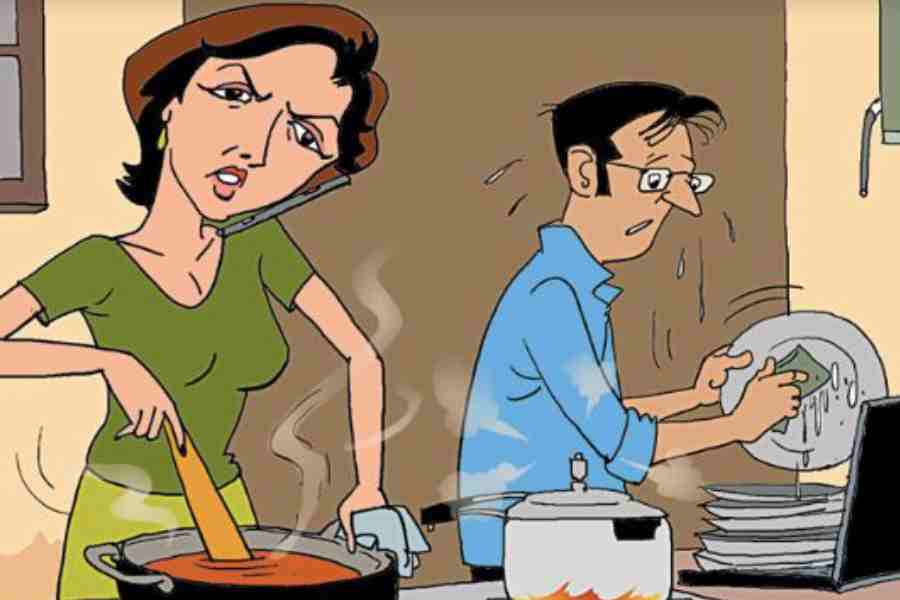Work at home
Sir — Some chicks refuse to fly the nest. The youth in China are among them. Stay-at-home offspring who have not been able to find employment are being termed “full-time children” and paid salaries by their parents to look after the home, do chores and care for the elderly. Although staying back at one’s parental house is common in many Asian countries, as is falling back on parents for financial help, it is heartening that domestic chores are being recognised as a form of paid labour. Unfortunately, women continue to do thankless household work for free despite being gainfully employed.
Tripti Sen, Hooghly
Avoid conflict
Sir — The Union defence minister, Rajnath Singh, should not have said that India is ready to cross the Line of Control to maintain its dignity without any provocation from Pakistan (“Thunder on Pak, mum on China”, July 27). He said this on the occasion of Kargil Vijay Divas in Ladakh. Singh must be careful to not incite tensions along the border.
Fakhrul Alam, Calcutta
Costly treatment
Sir — The Pradhan Mantri Jan Arogya Yojana, the health insurance scheme launched by Narendra Modi, is mired in difficulties. Firstly, over a third of the empanelled hospitals are inactive. Secondly, the scheme proposed to cover up to five lakh rupees in healthcare expenditure for over 10 crore economically vulnerable families. But the government’s budget for healthcare is a mere 2.1% of the gross domestic product. Informed intervention and careful monitoring can combat structural deficiencies of the PM-JAY scheme.
Vijay Singh Adhikari, Nainital
Sir — Although bone marrow transplant is an effective treatment strategy for diseases like thalassemia and aplastic anaemia, northern Indian states have a lower rate of transplants than southern and western ones (“Awareness on bone marrow transplant needed: Doctors”, July 23). West Bengal has several marrow transplant facilities at various private hospitals but this procedure is quite expensive. It is thus worrying that the PM-JAY does not cover organ transplants. This makes no sense since most private insurances in India cover such procedures.
Kiran Agarwal, Calcutta
Taxing sport
Sir — The goods and services tax council is re-evaluating the modalities of implementing the proposed 28% tax on online gaming (“GST meet on online gaming tax”, July 27). Being a $1.5 billion industry, online gaming not only generates significant employment but also contributes to the economic growth of the country. The decision of the GST council should be based not just on the ethics but also on the commercial aspects of gaming.
Bal Govind, Noida
Hope and caution
Sir — The International Monetary Fund has raised its forecast for global growth this year, with economic activity in both developed and developing economies having seen a major uptick. Although the IMF expects global inflation to fall from 8.7% in 2022 to 6.8% in 2023, most central banks have not lowered interest rates.
The Indian economy is predicted to grow at 6.1% in 2023 but the prolongation of the Russia-Ukraine war can disrupt this process. Policymakers must focus on measures to reduce inflation, maintain financial stability and rebuild fiscal buffers.
M. Jeyaram, Sholavandan, Tamil Nadu
Sir — The IMF’s chief economist, Pierre-Olivier Gourinchas, has cautioned that risks, both known and unforeseen, abound for the world economy. We should heed his words.
Ranjita Bera, Calcutta










